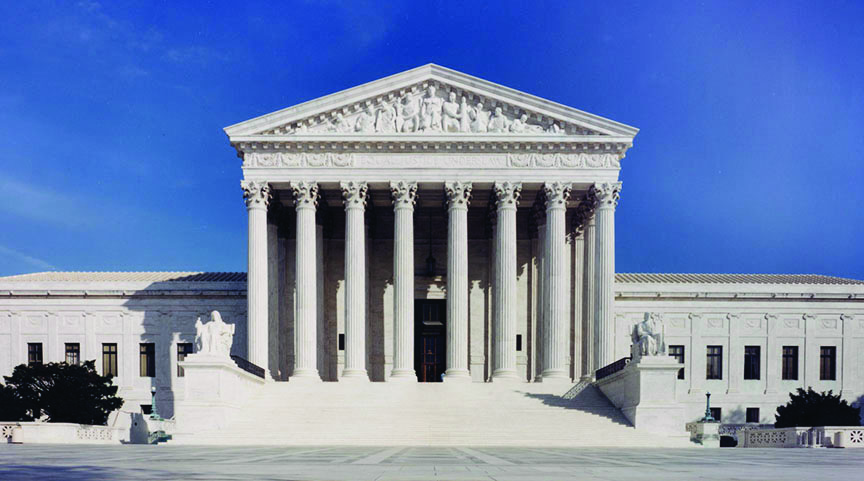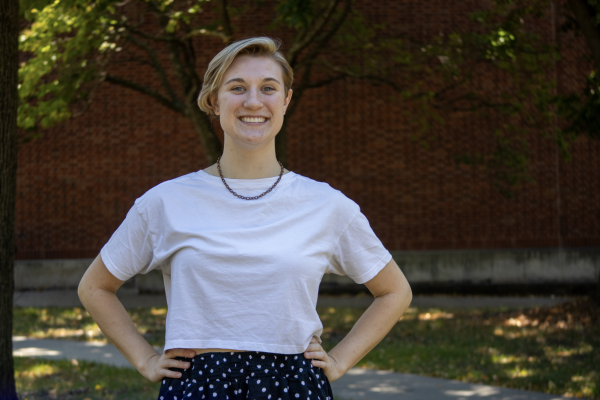Starting in early November, Drake University prepared to comply with a federal rule that required employers with 100 or more employees to enforce mandatory COVID-19 vaccination or weekly testing for the virus. That rule was an emergency temporary standard (ETS) issued by the Occupational Safety and Health Administration (OSHA).
While the standard was actively undergoing challenges in court, human resources director Maureen De Armond and environmental health and safety director Chris Nickell got to work. They began to write policies and work out the logistics that the mandate would involve.
Then, on Jan. 13, the Supreme Court voted 6-3 that OSHA does not have the authority to advance public health measures like the ETS. They argued that because COVID is present both inside and outside of the workplace, it does not fall under the agency’s perview. However, the court upheld a similar mandate for healthcare workers in a 5-4 decision.
“In other words, the Court argues that OSHA cannot keep workplaces safe from COVID–19 because the agency (as it readily acknowledges) has no power to address the disease outside the work setting,” the majority opinion says.
On a Drake level, the remaining question is about public health on campus. In the absence of a federal mandate, would implementing a vaccination or testing requirement be worth it? For Drake, the answer is a concise no, according to De Armond and Nickell.
“You’re safer here than any store, any restaurant in the city, so the testing was to be legally compliant. It really wasn’t to make campus safer,” De Armond said.
An additional disincentive for issuing a mandate is that under Iowa law, Drake students would lose state grant funding, the Times-Delphic previously reported. In Drake political science professor Matthew Record’s opinion, such restrictions are politically motivated.
“Any behavior on the part to punish institutions for trying to take steps to prevent the spread of COVID — there is no rational basis for any of that behavior at all, so it was obviously political,” Record said.
In Record’s opinion, the Supreme Court’s ruling was influenced by vaccine polarization in the current political climate. According to data from the Pew Research Center, there is a strong correlation between vaccine hesitancy and political affiliation among U.S. adults.
“It is completely obvious that as part of the normal course of modern institutional behavior that mandating vaccines is acceptable legal practice and within the boundaries of OSHA and the federal government more broadly,” Record said. “You could say that maybe the court was correcting 50 to 75 years of precedent from a contributional perspective, but they definitely weren’t following precedent. I think that the political ideology explains almost the entirety of why the Supreme Court has behaved the way it has.”
De Armond, who is also a licensed attorney, said she was surprised by the Court’s decision.
“The Supreme Court composition has changed quite a bit in the last couple years, and that clearly influenced the outcome of the Supreme Court,” De Armond said. “Even that it was 6-to-3 instead of 5-to-4 surprised me.”
OSHA has withdrawn the ETS in response to the court’s decision, but their website says that they are focusing on developing a “permanent COVID-19 Healthcare Standard.” If the administration issues a new ruling, De Armond and Nickell said Drake will be prepared to comply. Regardless of a federal mandate, however, they said the institution will continue to encourage mask-wearing and vaccination.
“The University will continue to watch all of the developments in this case, and we’ll come up with the appropriate required responses should they be needed,” Nickell said.
De Armond said that after dedicating time and effort outside of her normal duties to draft Drake policy for the mandate, she feels disappointed that she does not get to see her work bear out.
“The fact that I’m working on it, and my free days, like Christmas morning, honestly, that’s okay. I signed up for that,” De Armond said. “There is that element of just frustration when you spend loads and loads of time on something and you’re trying to get it right, you’ve got all the best intentions, and then it ends up going in the garbage. There’s a little bit of heartbreak there.”
According to Record, while institutions like Drake may be required to comply with state and federal rulings, managing COVID is also a matter of understanding that we are complexly interdependent upon one another.
“The real solution here is not legal. The real solution here is civic,” Record said. “It has to do with our understanding that we are interconnected and that we live in a society together, and that we owe to each other a sort of basic step that we can take to be closer to one another.”








